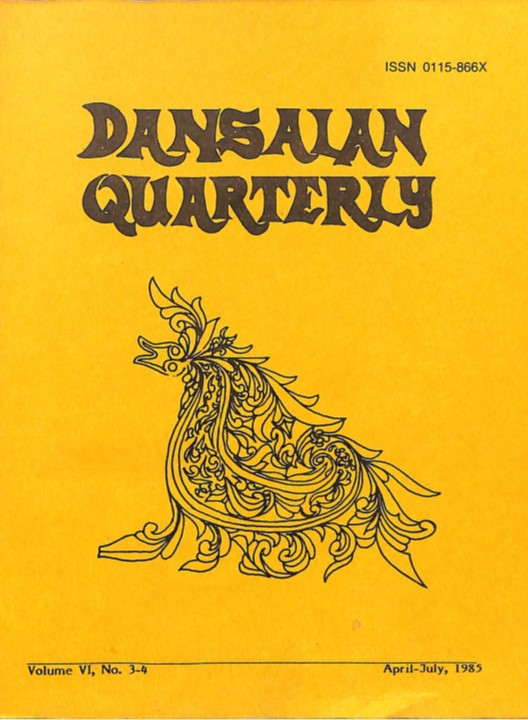April-July 1985 Vol. VI, No. 3-4
10 July 2022 Dansalan Quarterly
Maidan, in this journal, presents a thesis on the many factors that affect the family planning methods of Maranao housewives. In particular, the thesis delves into the role of socioeconomic and cultural factors in influencing urban and rural Maranaos’ knowledge of, attitude towards, and practices of family planning. Maidan starts with surveying the socioeconomic profile of the respondents, which includes pertinent questions about their age, educational attainment, employment, among others. The writer proceeds with discussing their knowledge of family planning, specifically how exposure to mass media had helped them learn about contraceptive methods. The study also reveals how both the urban and rural respondents had not attended a seminar or workshop on family planning, which might help in designing future policies. Additionally, it shows how urban respondents are more knowledgeable about family planning compared to rural respondents. Next, it explores the respondents’ attitudes towards family planning, revealing that most urban respondents had positive attitudes, while most rural respondents had the opposite. On the contrary, while both urban and rural respondents had some knowledge of family planning, both do not practice it. This is due to the influence of Islam, considering how the religion continues to forbid such methods. Maidan recommends some ways to make the family planning program in Lanao del Sur more effective. These include the presence of more educators and doctors, particularly in Marawi City, to promote family planning education, the encouragement of motivators like religious leaders to persuade housewives to attend family planning seminars, among others.
Please email dansalan.quarterly@dcfi.edu.ph to request a copy of the issue.

